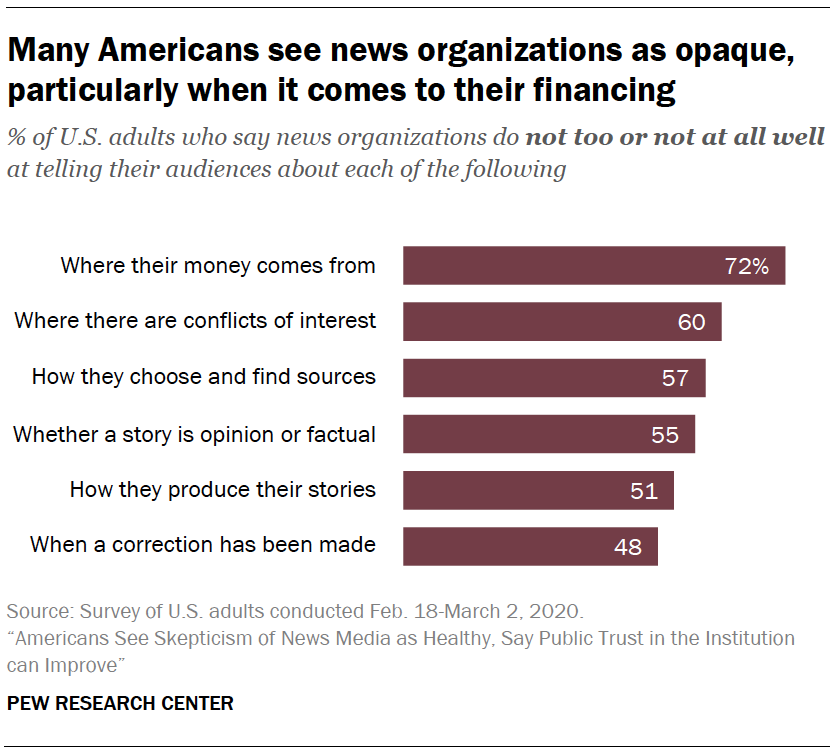Jack Knudson
jackknudson89@gmail.com
The foundation of media relies on the trust that people put into it. While this statement might seem better suited for earlier times when skepticism was less rampant, it is undeniable that the paramount role of media is to serve the public with crucial, truthful information.
There is a common expression that media is a "watchdog" set out to check the actions of government, which, for decades now, have been mistrusted by many. The "three estates", in a modern sense, is a term often applied to the legislative, executive, and judicial branches of government. The "fourth estate", furthermore, is a newer term coined to what could be a variety of nebulous concepts, although many ascribe it to the mainstream media and its role in looking over politics. But what happens when this "fourth estate", created to watch after the other three, experiences corruption and requires a watchdog of its own?
Here is where the "fifth estate" comes in. At this point, it might seem like a headache to keep these newly observed branches of society in mind. This headache might be further exacerbated when one realizes that the "fifth estate" is the most nebulous of them all. While not a widely used term, it generally applies to outlets of citizen journalism, such as blogs and smaller web publications that are offered as an alternative to mainstream media.
A selection in Elements of Journalism by Tom Rosenstiel and Bill Kovach explains the growth of this new concept: one could say, a watchdog of a watchdog. They write, "the rise of the Web and the democratization of content production have given voice to citizens who are monitoring politics, society, and the press"... "Together, they represent an unprecedented network of media watchdogs."
The root of this new estate comes from the growing skepticism of establishment media. Digging deeper, this skepticism in itself is rooted in a variety of specific concerns held by the public. A recent study from Pew Research Center, conducted from Feb. 18 to March 2, 2020, found that 72% of U.S. adults said news organizations do 'not too or not at all well' with telling audiences where their money comes from. While other topics, like conflicts of interest and validity of sources also rank high in the list, the issue of an 'opaque' quality when it comes to money says enough about why some people want alternative media sources.
Picture source: Pew Research Center
Roy Peter Clark of the Poynter Institute explores the idea of the fifth estate and even claims that it might continue to hold a place in the future of journalism. He describes it as "a frame that sees that the freedoms and responsibilities of the First Amendment empower not just a professional caste of news gatherers and distributors, but potentially every citizen."
He goes on to use an interesting analogy: "We all know, for example," he writes, "that police cannot protect a community without the cooperation of people who live within it... a well-regulated neighborhood watch program can help keep a community safe."
In the same way, mainstream media cannot protect a community without the cooperation and the trust of people.
Luckily, not all trust in media has eroded, and the U.S. population still consumes it in large amounts. However, there are things that the mainstream media can do to ensure ethical values that might help to rebuild some of that lost trust. For example, news organizations can create work environments that are more open to the sharing and discussion of whether a piece of news meets important ethical requirements.
Ultimately, though, it is up to the individual journalists to each create their own codes of moral ethics for stories. Along these lines, some experienced journalists use the basis of their moral codes to exit the fourth estate and enter the fifth estate as independent storytellers.
The fifth estate is a term that could use some refining in the future. First of all, going back to the analogy from Clark, citizen journalism can 'help' keep a community informed, but as it stands, an unorganized network of journalists cannot reliably hold a whole community on its shoulders. What the fifth estate does can certainly be beneficial and even necessary: acting as another watchdog that can keep mainstream media in check when there are unethical situations afoot.
For the unity and survival of journalism as an industry, though, the fifth estate should not play the archenemy of mainstream media. It would be better if the two united towards shared goals: presenting the truth and reforming to stop unethical problems at all rungs of the media latter, whether at the very top with media monoliths or the very bottom with amateur blogs.

No comments:
Post a Comment